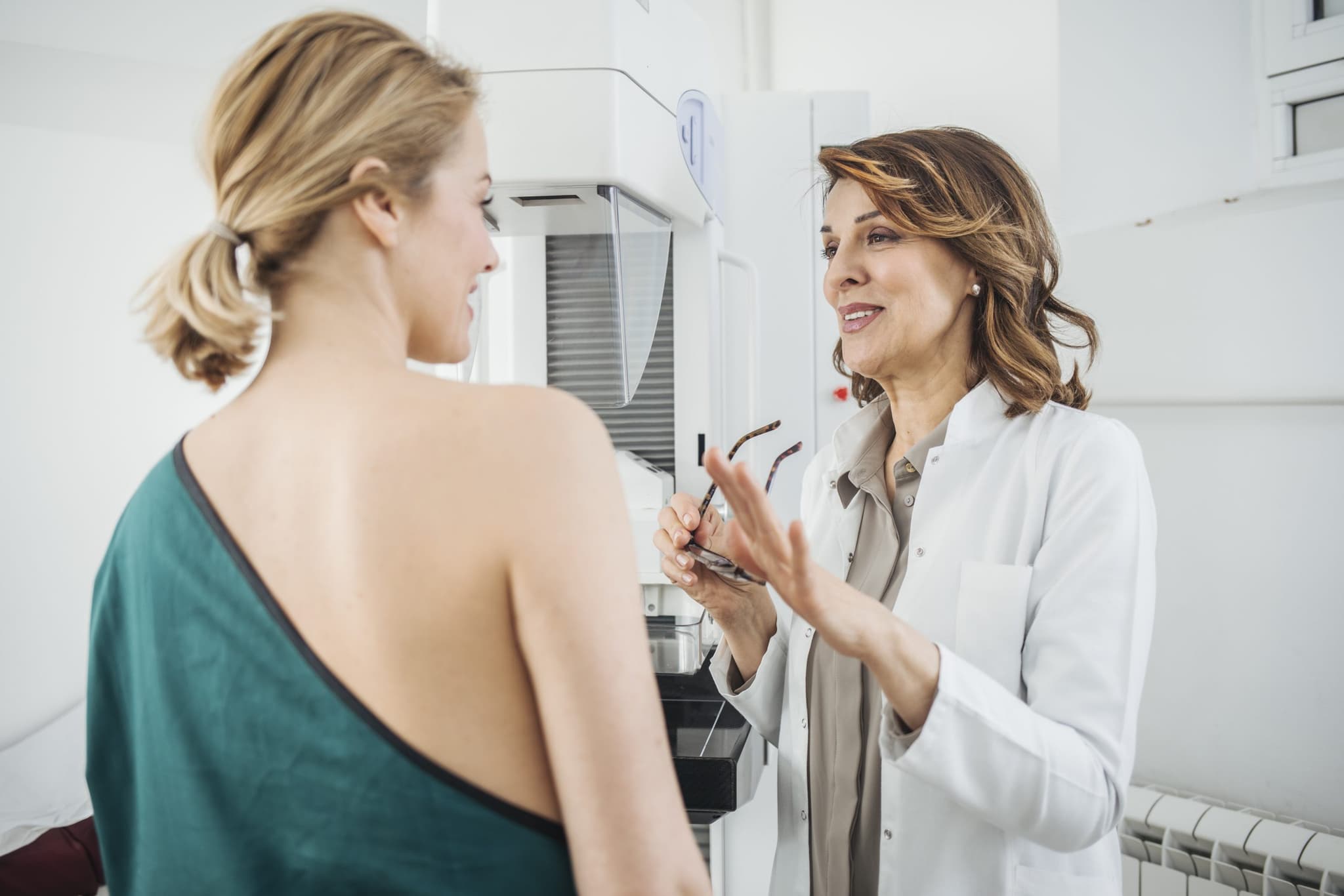
2025-05-07T13:59:05
Defying the Odds: How Revere Health Helped One Utah Woman Afford Live-Saving Cancer Treatment
- Cancer Center
- Medical Oncology
- Patient Testimonials
October 27, 2021 | Cancer Center • Imaging
Specialties:Imaging

October is Breast Cancer Awareness Month, an annual reminder that early detection is among the most important strategies for surviving and mitigating breast cancer. If it’s been a while since your last mammogram, ask your doctor about a 3D mammogram – this can help ensure your next screening is more effective and accurate.
A mammogram is used by a qualified specialist to examine the breast for diseases and cancers. During the procedure, a special x-ray is taken of the breast that produces an image of the breast tissue.
When a woman is screened regularly for breast cancer, any cancers found are more likely to be small. Screening tests are used to find diseases in people who do not have any symptoms and are often the best way to detect cancer and diseases early. A mammogram screening can find breast cancer before symptoms develop. According to the American Cancer Society, the five-year relative survival rate is 99 percent when breast cancer is found early and is in the localized stage.
Technological developments have improved mammograms from 2D (which create a two-dimensional breast image) to 3D. 3D mammograms (also called breast tomosynthesis or tomosynthesis) create a 3D picture of the breast using x-rays. The U.S. Food and Drug Administration (FDA) has approved 3D mammograms as a standard of care for breast cancer. Several studies found that 3D mammograms find more cancers and reduce the number of false positives.
Standard 2D mammograms are still effective, but they have some limitations:
A 3D mammogram (or digital tomosynthesis) takes multiple pictures of each breast at many different angles. The x-ray tube moves in an arc around the breast and takes 11 pictures during a seven-second procedure. The information is sent to a computer that assembles all the pictures into clear and highly focused 3D images throughout the entire breast.
While no test is 100% accurate, 3D breast imaging technique makes it easier for specialists to see through breast tissue and find cancer. This improves cancer detection and reduces the chance a woman would need to return for additional imaging.
The American College of Radiology and the Society of Breast Imaging recommend women start getting annual mammograms at age 40. This approach reduces the risk of dying from breast cancer and reduces the likelihood of more extensive treatment for any cancers found. Yearly mammograms beginning at age 40 will decrease a woman’s risk of dying of breast cancer by 30-40%. This approach saves the most lives.
All women, regardless of age, should be see their medical provider to assess their risk of developing breast cancer. Some women are at increased risk. For example, a strong family history of breast cancer suggests a woman may be at increased risk. These women may need to start screening early or undergo additional screening with breast MRI.
If you would like to schedule an appointment for a 3D mammogram or breast MRI, reach out to your healthcare provider or visit Revere Health Imaging to schedule an appointment today.

WRITTEN BY:
Lindsey LeBaron
Lindsey LeBaron has been working as the Marketing Assistant for Revere Health for the past three years. Lindsey has a bachelor’s degree in social sciences at Brigham Young University and will graduate with her master’s degree in global strategic communications at Florida International University in December 2021. Coupled with her master’s degree, Lindsey is also working on a certification in crisis management and consensus-building. Recently, she was awarded the honor of joining the National Communications Association as a member of the Lambda Pi Eta honor society. Lindsey is passionate about building lasting connections between communities to create lasting change and believes that communication is a vital element to building long-lasting relationships. When she is out of the office, Lindsey enjoys singing and playing the piano, going on adventures, traveling to new locations, and reading books about world affairs.

2025-05-07T13:59:05

2023-03-27T14:47:45

2021-11-29T16:31:04

2019-10-15T16:28:57
This information is not intended to replace the advice of a medical professional. You should always consult your doctor before making decisions about your health.